There is a huge difference between good and great.
Apparently, there is often a huge difference between the great and the greatest.
In sports, there are many fantastic athletes whose names we will remember. Then there are the athletes who stand apart from the rest … like Michael Phelps or Usain Bolt.
I recently stumbled upon a few charts highlighting the stratification between the top 1% and the #1.
Tom Brady
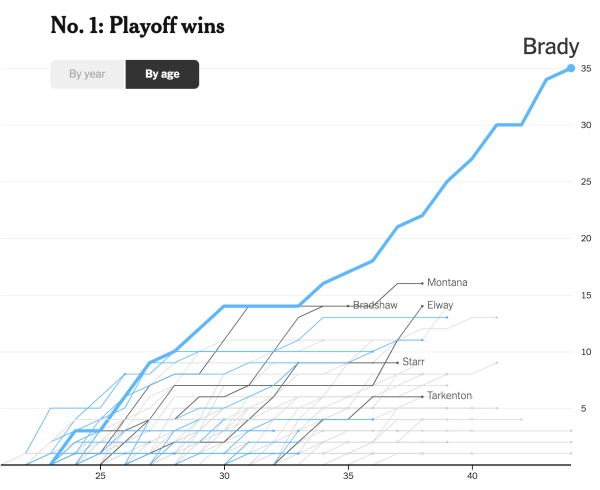 via NY Times
via NY Times
To put that statistic in perspective, no other quarterback has even played in 35 postseason games … but that is another measure of Tom Brady's greatness.
Jerry Rice
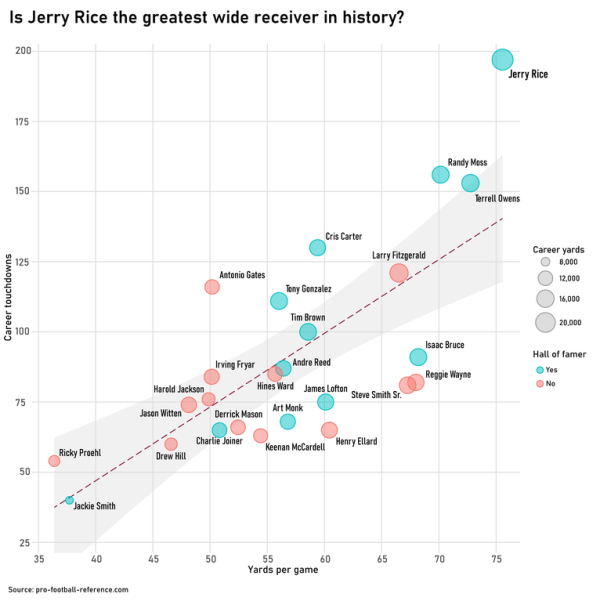 sdbernard via Reddit
sdbernard via Reddit
Some prominent names are missing from this list – like Julio Jones or Megatron – but, clearly, Jerry's performance stands apart from other legends of the game. For context, Julio Jones only had 61 TDs, which is relatively low on this chart, but averages 92 yards per game … which is so high that he'd be off the chart.
Wayne Gretzky
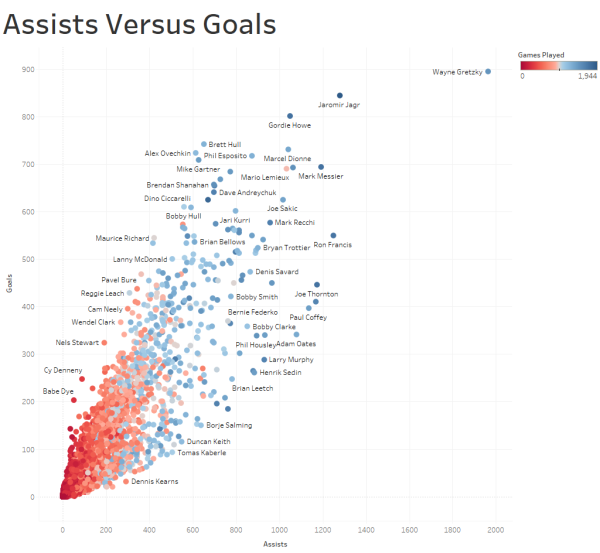 via NumberHound
via NumberHound
Wayne Gretzky is a sports legend, but this chart really puts it in perspective. Leader by a large margin in both assists and goals. He also has one of my favorite quotes –
“A good hockey player plays where the puck is. A great hockey player plays where the puck is going to be.”
Here's another interesting Wayne Gretzky stat:
Together, Wayne and Brent hold the NHL record for most combined points by two brothers – 2,857 for Wayne and 4 for Brent,[2] and are second overall in points scored by any number of brothers (behind the six brothers of the Sutter family who combined for 2,934 NHL points – 73 more than Wayne and Brent, although the Gretzkys' combined totals are greater than any five of the six Sutters.) – Wikipedia on Brent Gretzky
Serena Williams
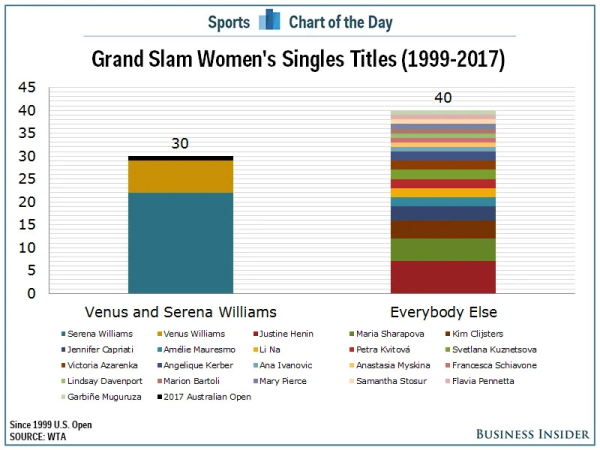 via Yahoo!Sports
via Yahoo!Sports
What about Nature versus Nurture?
Genetics and upbringing might play a part in greatness. There are several great sibling combos like the Gretzkys, the Mannings, and the Williams sisters.
Both Venus and Serena are dominant athletes, but Serena is in the running for one of the most dominant athletes in any sport.
Have you seen any other crazy stats like these? I'd love to see them.

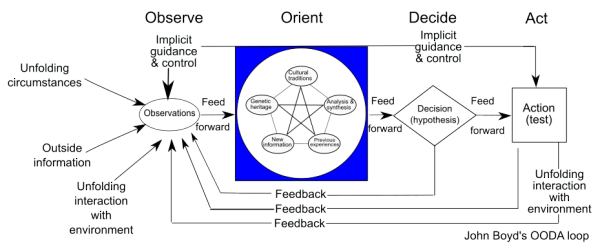

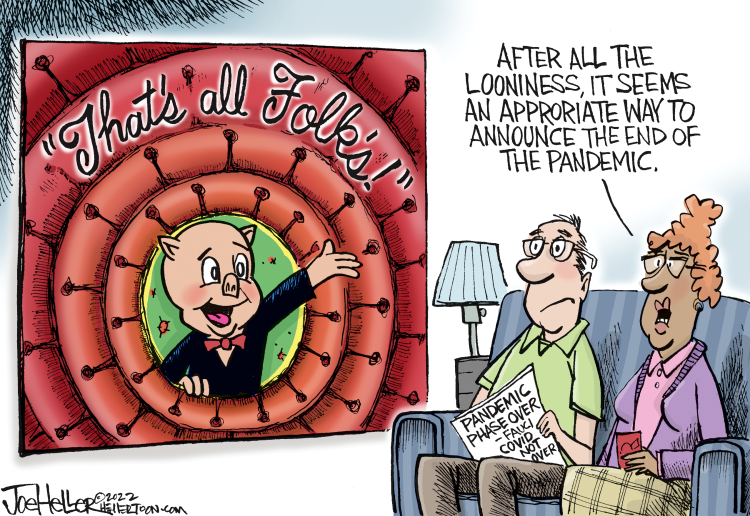

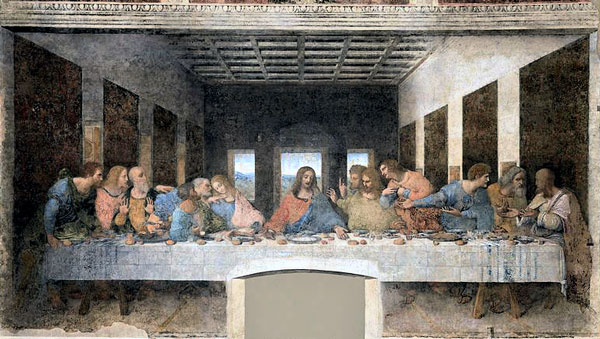
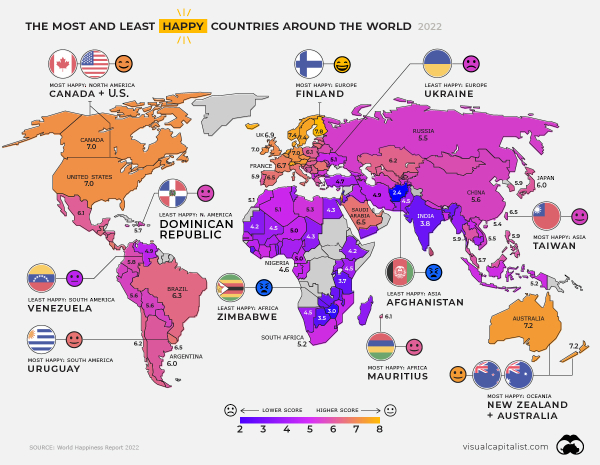 via visualcapitalist
via visualcapitalist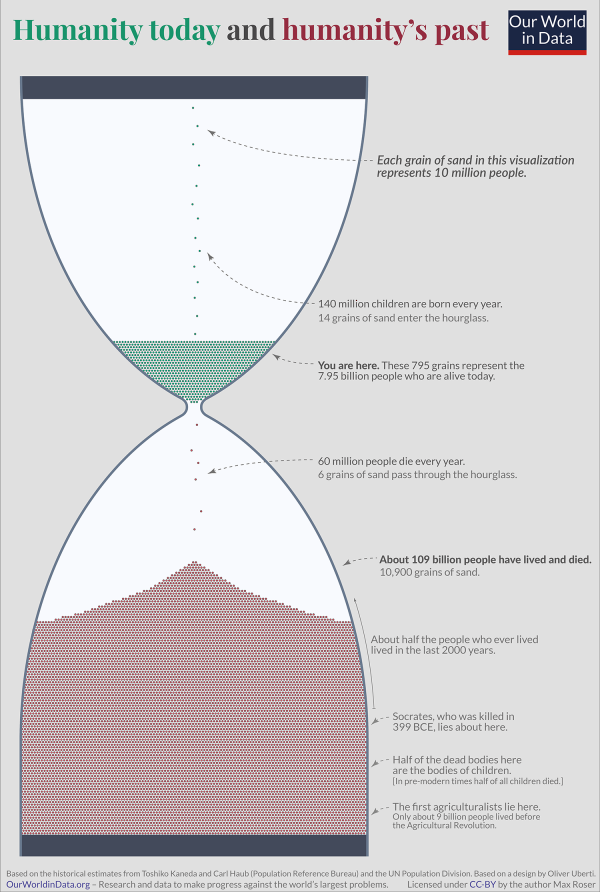 via
via 
 via
via